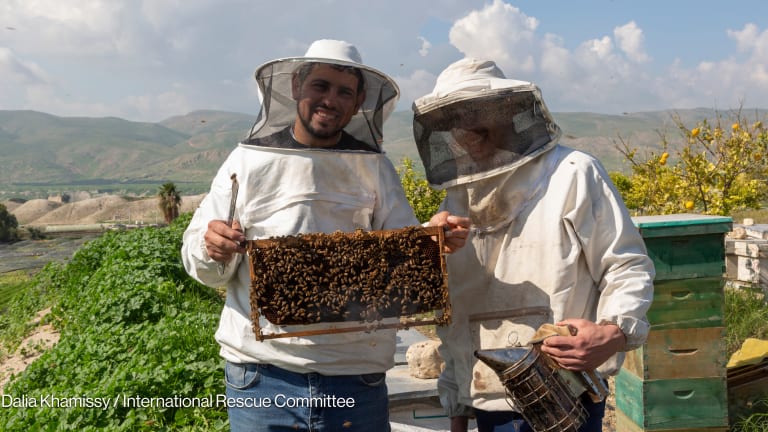
BARCELONA — The Global Resilient Cities Network was announced Tuesday at the 10th session of the World Urban Forum in Abu Dhabi, United Arab Emirates, after months of negotiations.
The network is an evolution of 100 Resilient Cities after The Rockefeller Foundation made the decision to stop funding for the program. Chief resilience officers — high-level advisors appointed by a city’s mayor, and partially paid by the 100 Resilient Cities program — have been involved in the design of the network, which will take a fundamentally different approach to partnerships.
“Make no mistake, 100 Resilient Cities, as a program, is closed but this new organization carries on its legacy by continuing the work with cities and between cities,” said Lauren Sorkin, acting executive director with the Global Resilient Cities Network, speaking at the event.
With unprecedented urbanization and a global climate crisis, networks that enable collaboration and inclusion at scale are more critical now than ever, Sorkin said. The organization will leverage the tools and expertise of its membership team and former 100RC experts to support its global community of practitioners and drive urban resilience action to protect vulnerable communities from climate change.
While maintaining the “closely knit alliance” of cities and chief resilience officers, the organization is looking to welcome 10 new member cities by the end of 2020. Cities from across all regions have expressed an interest in joining the network as they look for ways to address the global challenges they are facing.
UNDP fielding 'complex asks' from cities on environment, policy director says (Pro)
Broader partnerships will be required as cities grapple with climate change and urbanization, according to Haoliang Xu, U.N. assistant secretary-general and director of UNDP's Bureau for Policy and Programme Support.
“As complex systems, cities need to anchor their future through the transformative power of resilience planning,” Sorkin said. The network will continue with the current model which provides funding to cover the first two years of the chief resilience officers’ salary but cities are being encouraged to come with their own funding and partnerships.
The organization is also looking to develop strategic partnerships where there is a common interest from members and a partner willing to help deliver projects on the ground.
“We’ve been ... looking at the demand and then curating thematic action areas and partnerships around them,” Sorkin told Devex after the announcement.
The multiyear partnership with Visa is an example of this new approach. The financial corporation is supporting an initiative on urban mobility and the role of digital payments and technology in streamlining urban transport in Latin America. Several other partners, including the World Resources Institute, The Circulate Initiative, and the Ocean Conservancy, are already on board and will provide funding, knowledge or implementation support to the network.
Piero Pelizzaro, chief resilience officer for the City of Milan, also spoke of the critical role of partnerships as the organization moves into the implementation phase and looks to scale its impact. This can only be achieved by working with a range of different partners, including the private sector, he explained, and collaborating not just on funding but also on technical aspects of urban resilience solutions.
Sorkin gave no indication of the organization’s budget going forward but said that no one funder can determine the future of the network as it belongs to its member cities. The Rockefeller Foundation did provide a “seed grant” to support the transition of the network and there is already a “pipeline of partnerships that will allow us to continue this work for at least five years.”
The organization will not be as large as the former program though, she added. A newly established global steering committee, that has two representatives from each region, will weigh in on decisions about the direction of the organization, meanwhile, working groups will co-design new projects, thematic partnerships, and tools for knowledge dissemination. Current priority areas are around resilience infrastructure, nature-based solutions, water and sanitation, and circular economy.
If we work in silos in trying to address issues — such as fires, floods, and disease — then we don’t have a chance, Sorkin said, so the network is designed to facilitate mass collaboration. There will be a renewed focus on doing this in a results-driven way and chief resilience officers will set targets and hold each other accountable.
“We're at a time where we need to be able to show results for our communities ... and also communicate that work at a scale that responds to the urgency of our global goals, Sorkin said.
Visit the resilientfutures.devex.com series for more coverage on the practical ways cities can build resilience and reduce disaster impact. You can join the conversation using the hashtag #ResilientCities.









